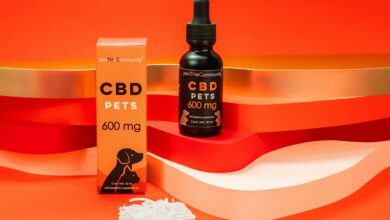Can Dog Overdose on Cbd

Cannabidiol (CBD) is increasingly popular for managing various conditions in dogs. However, the potential for overdose exists and can lead to harmful side effects. Symptoms may range from lethargy to gastrointestinal distress. Understanding the safe dosage and recognizing the signs of an overdose are essential for dog owners. It raises critical questions about the balance between therapeutic benefits and safety. What should pet owners know to protect their dogs effectively?
Understanding CBD and Its Effects on Dogs
As more pet owners seek alternative treatments for their dogs, understanding CBD and its effects becomes increasingly important.
CBD, or cannabidiol, offers potential benefits such as reducing anxiety, alleviating pain, and improving overall dog health.
By interacting with the endocannabinoid system, CBD may promote balance within the body, enhancing well-being.
Awareness of these effects empowers owners to make informed choices for their pets.
Signs of CBD Overdose in Dogs
While CBD may offer various benefits to dogs, it is important for pet owners to be aware of the potential for overdose.
Symptoms identification includes lethargy, excessive drooling, vomiting, and disorientation. These signs can indicate an adverse reaction, necessitating immediate veterinary attention.
Understanding these symptoms is crucial for overdose prevention, ensuring the wellbeing of dogs while utilizing CBD products responsibly.
Safe Dosage Guidelines for Dogs
How can pet owners determine the appropriate CBD dosage for their dogs?
Pet owners should consider CBD dosage recommendations based on dog weight considerations. A general guideline suggests starting with 1-2 mg of CBD per 10 pounds of body weight.
Monitoring the dog's response is crucial, adjusting the dosage as necessary, while ensuring it remains within safe levels to prevent potential adverse reactions.
What to Do If You Suspect a CBD Overdose
What should a pet owner do if they suspect their dog has overdosed on CBD?
Immediate action is crucial for CBD safety. Owners should observe their dog's symptoms and contact a veterinarian or poison control center for guidance.
Providing details about the CBD product and dosage can aid in emergency response.
Prompt medical attention can mitigate potential adverse effects and ensure the dog's well-being.
Conclusion
In the realm of canine wellness, CBD can be a double-edged sword, offering relief while also posing risks. Just as a ship must navigate carefully through stormy seas, pet owners should tread cautiously with dosage, ensuring their furry companions sail smoothly towards health. Awareness of potential overdose symptoms is vital, as is immediate action when needed. By anchoring their approach in knowledge and vigilance, owners can ensure their dogs enjoy the calming benefits of CBD without the threat of harm.






